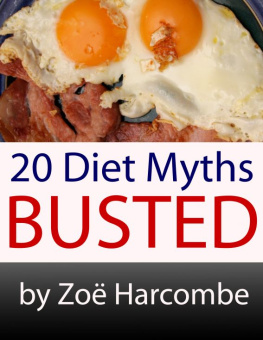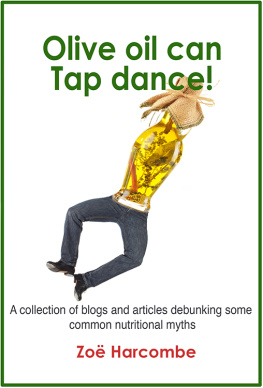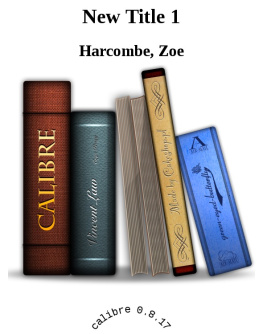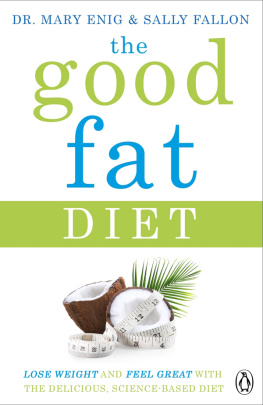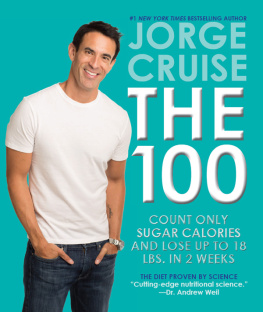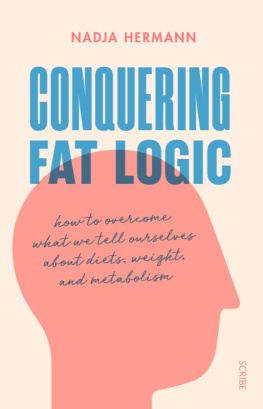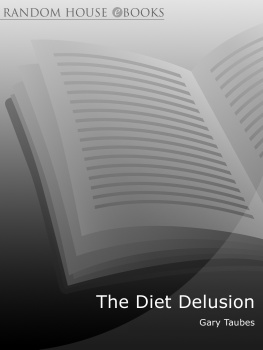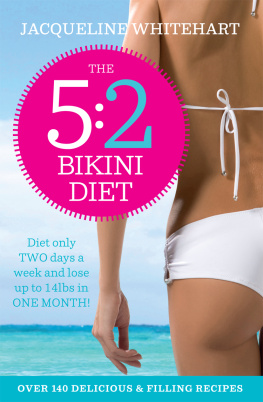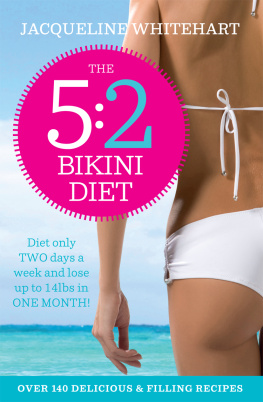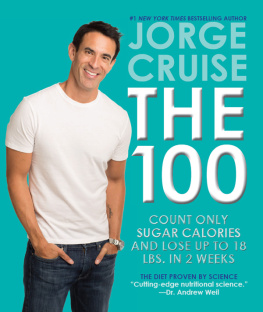20 Diet Myths - Busted
Published by Columbus Digital ServicesLtd
www.columbuspublishing.co.uk
EPub ISBN: 978-1-907797-18-7
Rev:187-20110817
Copyright Zo Harcombe 2011
Smashwords Edition
ZoHarcombe has asserted her right to be identified as the author ofthis work in accordance with the Copyright, Designs and Patents Act1988.
Please feel free to share this eBook with yourfriends .
PDFdownloads can be obtained from
http://www.zoeharcombe.com/
If you wish to quote, use or publish the work in full or inany part, you must prominently credit Zo Harcombe as the authorand www.zoeharcombe.com as thesource.
Theadvice offered in this book, although based on the authorsexperience and over twenty years of research, is not intended to bea substitute for the advice of your personal physician. Alwaysconsult a medical practitioner before embarking on any diet.Neither the author nor the publisher can be held responsible forany loss or claim arising from the use or misuse of thisbook.
Forfurther information, please visit
www.zoeharcombe.com
www.theobesityepidemic.org
Contents:
Introduction.
Conventional Wisdom tells usthat all we need to do to lose weight is to eat less and/or domore. Zoe Harcombe busts this, and other diet myths in this thoughtprovoking eBook
As well as busting 20 of themost strongly held diet myths of recent times, it includes the fullintroduction to Zo Harcombes book The Obesity Epidemic: What caused it? Howcan we stop it? available in hardback on amazon.com andamazon.co.uk.
The truth is deafening, howeverquietly spoken - Anon
Myth 1: Energy inequals energy out
One of the favouriteslogans of diet advisors is energy in equals energy out. Theyeven add you cant change the laws of physics/the laws of theuniverse. I dont know if they know what the laws of the universesay.
There are four laws of theuniverse. We can largely ignore the zeroth and the third in theworld of dieting. The two that we need to take into account are the first and thesecond and neither of these says energy in equals energyout.
The first law says: "In a closedsystem, in thermal equilibrium, energy can neither be created nordestroyed. Energy can be changed from one form to another, but itshall be conserved. The human body, however, is not a closed systemand it is not in thermal equilibrium (although it is continuallytrying to be there). So, we also need to consider the secondlaw.
The second law (entropy) hasbeen called the law of common sense it says that energy will belost and energy will be used up in making available energy and weneed to take both of these into account. This is the law thatproves that a calorie is not a calorie, as even Weight Watcherscottoned on to with their launch of ProPoints in November 2010. The energy used up inmaking carbohydrate, for example, available to the body as energyvs. the energy used up converting protein to usable energy issubstantially different. 100 calories of carbohydrate eaten maymake 93 available to the body; 100 calories of protein eaten maymake only 70 available .(1) Thats a significant advantage for dieters andhelps to explain the effectiveness of low carbohydratediets.
These laws of the universewere developed during the industrial revolution to help understandif we could make a perfectly efficient steam engine. The laws wereand are all about energy, not weight. The laws say nothingabout weight being conserved we humans flit between energy and weightinterchangeably in the world of dieting and our conversions andassumptions are wrong.
The laws of the universe were never intendedto become the fundamental principles of dieting. They do have somerelevance to dieting, but only when they are correctly applied andwhen all the caveats are allowed for. There is simply no law thatsays energy in equals energy out. Even if there were, the corollarywould surely be less energy in equals less energy out, whichbrings us nicely to the second myth...
Myth 2: Eatingless will make you weigh less
Eating less will not make you weigh less. It is an almost universallyheld belief that people who are overweight just need to eat lessand/or do more. The idea that eating less will make you weigh lessis based on so many underlying assumptions none of which arereasonable to make. The idea that, if you eat 500 fewer caloriesthe body will give up 500 calories of fat, to make up thedifference, is the ultimate naivety in the world of dieting. Thebody is not acash machine for fat.
Let us say that our average person hasa basal metabolic rate (BMR) requirement for 1,500 calories a day(the number of calories the person would need if they were ill inbed all day just to run all the activities done by the body). Letus then say that they have a requirement for 500 additionalcalories if they are up and about (this is a realistic estimate the BMR is the main determinant of the calorie need for the day bya margin).
The idea that a reduction of 500calories leads to the body giving up 500 calories of fat assumesthat neither the BMR requirement (1,500 calories) nor theadditional requirement (500 calories) change. In reality bothchange. The person who eats less has less energy and they willlikely do less additional activity that day they wont go to thegym or walk to the post box they will be too tired. The body willalso cut back on its maintenance for the day it can save cellrepair and building bone density for another day you haventeaten enough, so it can cut back.
Think about it you lose your job you dont automatically dip into savings you cut back onexpenditure and the body does exactly the same.
Myth 3: Doingmore will make you weigh less
Doing more will not make you weigh less. If you think that you can eatthe 2,000 calories needed for the day and then try to do 500 morecalories worth of exercise with the body making no adjustmentelsewhere, you are wrong. The body is highly likely to cut back onthe additional calorie expenditure if you go to the gym, you maythen sit on the sofa all evening too tired to do the housework.The body can also reduce the maintenance it had planned to do forthat day.
And here is a really crucialthing exercise and BMR require quite different calories. Exerciseis arguably best fuelled by carbohydrate (it provides glucosequickly for the body to use). BMR activities need fat, protein,vitamins and minerals carbs are only useful for the vitamins andminerals they provide the carbohydrate itself can only be usedfor energy not cell repair and fighting infection. Hence if youeat 1,500 calories of carbohydrate (as the average citizen of thedeveloped world currently does) it cant be used for body maintenance you need to burn itoff down the gym or you will gain weight.
Both the eating less and doingmore beliefs also make the massive and wrong assumption that thebody is able to burn fat. The body will always use carbohydrate forfuel first. Hence, if our average person has any glucose in theblood stream or any glycogen (stored glucose) in the body thiswill be used to cover any gap in food eaten or activity done. Thebody can only burn fat when there is no glucose/glycogen available.Modern man rarely, if ever, allows his body to get to the statewhere it can burn its own fat let alone will.
Myth 4: Weightgain is the result of too many calories in
Weight gain is the result of fat being stored, nottoo many calories in. Equally, weight loss is about fat lost, notabout putting fewer calories in.
There are two forms of fat in thehuman body: triglycerides and fatty acids. Human fat/adiposetissue/love handles whatever you call it this is the fat storedas triglycerides. Fatty acids are burned for fuel. Triglyceridesare three fatty acids joined together by something called glycerol.Fat enters and exits fat cells as fatty acids (triglycerides aretoo big to move across the cell wall).
Next page
